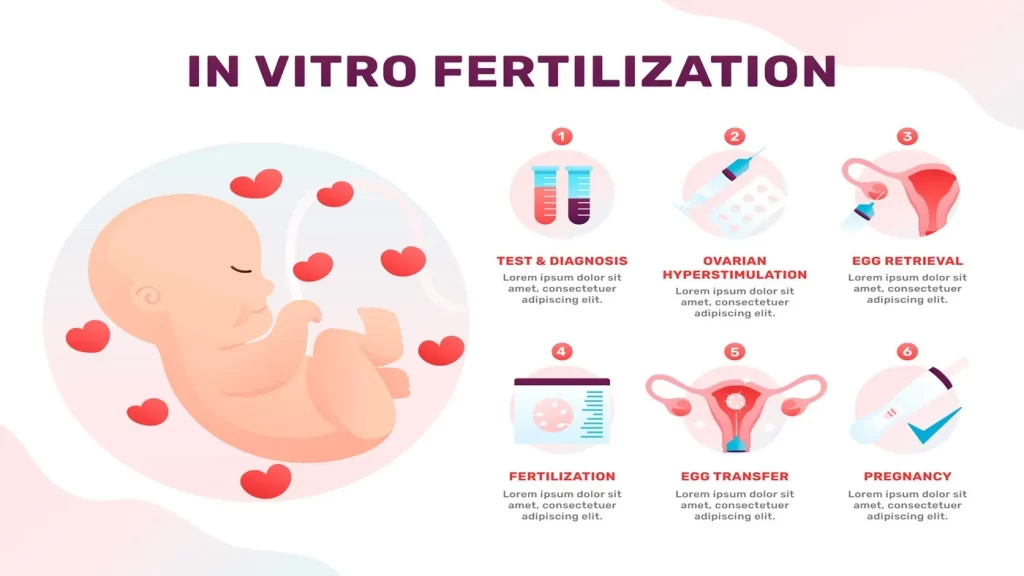
In vitro fertilization, commonly known as IVF, is a process that helps infertile couples to have children. This procedure involves creating an embryo by combining the woman’s eggs and the man’s sperm cells in a laboratory to stimulate natural reproduction. However, it’s important to note that not all patients are suitable candidates for IVF, as factors such as age, medical history, weight, and other vital signs may affect the procedure’s success.
Every patient undergoes a thorough evaluation before beginning the IVF treatment. Your doctors will determine whether In vitro fertilization (IVF) is the best option for you based on evaluating results, which will involve history, blood tests to measure your egg supply and uterine assessment. Couples are recommended genetic screening to rule out the prospects of having any genetic condition, as the success of IVF primarily relies on the ability to produce genetically normal embryos.
Did you know that genetic screening is an excellent way for couples to ensure that there are no hereditary diseases in their family that could affect their future children? It’s a simple and effective way to give you peace of mind and help you make informed decisions about your family’s health.
Before beginning IVF, it is advisable to consider seeking counselling. Since IVF can be a demanding and exhaustive procedure, both physically and emotionally, it is essential to address factors such as your lifestyle. Maintaining a healthy lifestyle and having a healthy body mass index can improve your chances of getting pregnant.
Following are the steps for an IVF treatment:
- Ovulation – In-vitro fertilization (IVF) involves the use of fertility medications to enhance the number of mature eggs. Doctors monitor hormone levels through blood tests and examine ovaries through ultrasound since some eggs may remain
- Collection of Eggs – Follicular aspiration is a minor medical procedure to extract eggs from follicles. During this procedure, tiny needles are inserted into the vagina under the guidance of ultrasonography. For the patient’s comfort, sedation is given. Usually, the patient may experience cramping after the surgery, but this typically goes away within a day or two
- Retrieving the sperm – A sperm sample that is ready to fuse with the eggs is produced by the male partner.
- Insemination – After the collection of sperm and eggs, they are placed in a laboratory dish for fertilization. Continuous monitoring of cells to ensure the fertilization process is occurring effectively. An embryo develops from a fertilized When an embryo starts to transform into a blastocyst, preimplantation genetic testing is encouraged to search for chromosomal abnormalities. During the transfer procedure, just one or two viable embryos are placed in the uterus. IVF doctors prepare the uterine lining for embryo implantation by injecting hormones and other medication. In a technique termed ICSI, a single sperm is introduced precisely into the egg.
- Embryo implantation – Embryo transfer happens a few days after egg retrieval, and it’s a crucial step in fertility treatment. Although the surgery is usually painless, there may be mild cramping. Patients are given mild sedatives to ensure their comfort. A catheter, which is a tube, is inserted into the uterus through the vagina. One or more embryos are placed into the uterus using a syringe attached to the end of the catheter, as part of the in vitro fertilization
- After the procedure – Proper rest is recommended on the day of the embryo Most women can return to work the next day. Progesterone is given daily as a medication for the first 7 to 9 weeks after the embryo is transplanted. This hormone helps the embryo attach to the uterine lining and promotes its growth after implantation. To prevent miscarriage, doctors recommend taking progesterone supplements between the 8th and 13th weeks of pregnancy.
A pregnancy test will be conducted at the clinic to determine if the embryo transfer was successful. If the result is positive after 12 to 14 days, it confirms pregnancy.
Can IVF be successful using frozen eggs?
Yes, IVF can be successful using frozen eggs. Frozen eggs can yield successful pregnancies if the hospital has expertise in the implantation of frozen eggs.
How Much Does an IVF Cycle Cost in India?
The cost of one IVF cycle in India typically ranges from Rs. 85,000 to Rs. 2,50,000. Cost varies based on medical condition, medication, IVF treatment type, and clinic location.